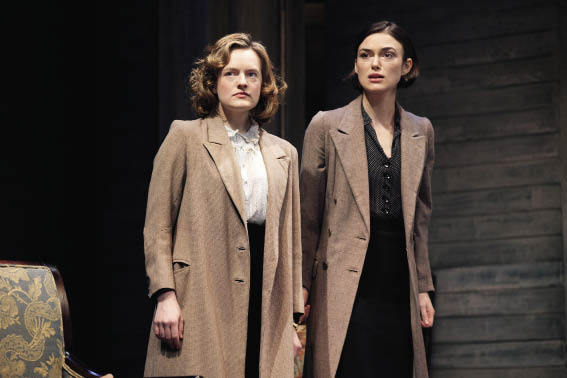Forty years ago kids assumed that when they grew up they’d fly to Mars. They didn’t expect to find a world that was too scared to turn on a lightbulb.
Forty years ago kids assumed that when they grew up they’d fly to Mars. They didn’t expect to find a world that was too scared to turn on a lightbulb. Our timidity owes itself to the failure of science to devise impressive new large-scale pieces of kit. Every breakthrough these days takes place at the micro, nano and millimetric level, while up at the mega end nothing new has appeared since the jet. Space rockets are just a refinement of ballistics technology. Apollo 11 was a firework. The Shuttle is a reuseable firework. And even that seems to have run out of gunpowder. This technological deficit has engendered a loss of faith in science.
The spirit of hope that filled boys’ minds with astronautical dreams in the 1960s has given way to a cult of fear and defeat which at its most intense becomes a masochistic lust for disaster, a titillated yearning for doom and Armageddon. This religion of awe and terror, which requires votaries to make daily sacrifices to some unseen and vengeful deity that hates mankind, would be perfectly at home in the Dark Ages but it finds itself very cosily accommodated in the fretful West these days where every crisis-monger, drought-hugger and fiasco-collector is granted legitimacy, and anyone who questions the faith is condemned as a loon.
The cultists have commissioned a quartet of playwrights to dramatise their bizarre creed and the result is Greenland at the National. As you’d expect from a play designed by a committee, it lasts ages, wastes fortunes and decides nothing. Each of the four writers has come up with a plot, or perhaps plot and a half, and these tangled threads are populated with 20 or so jabbering Woodentops who trot around the Lyttelton stage making a lot of noise and very little else.
Accidentally, the play reveals that the thermo-debate has ground to a halt. There’s no advocacy here. The script simply assumes that the righteous are right about everything. The views of the sceptics are articulated by a thick Cockney granddad shrieking a couple of soundbites through a megaphone. It looks to me as if the audience for the green scare has peaked. The cult mistakenly assumed that the volatility of the climate would keep it going for decades but public opinion is more volatile than the troposphere will ever be. CO2 seems a rather tired source of panic now that we have reckless bankers and nuked-up Iranian demagogues to worry about. The lovely Lyttelton was half-empty. Small wonder.
Birdsong has finally flown the coop at the Comedy Theatre and made room for The Children’s Hour by Lillian Hellman. We’re in a New England girls school where two beautiful young mistresses are accused of having an affair. Big deal back in the 1930s when same-sex love was regarded as a form of madness. Now it’s madness to view it as madness and this creates quite a distance between us and the material. The script is busy with diversions and the whole of the first act is devoted to a coven of school bullies who initiate the accusations against Martha (Elisabeth Moss) and Karen (Keira Knightley). These two nice-looking megastars have little to do but stroll around shouting and pouting in their stylish period clothes.
Much time is devoted to Martha’s aunt, a pretentious English teacher with a lisping French accent, who longs to be an actress and gets her chance when Martha gives her the boot. After a great deal of thumb-twiddling we finally get to the point. The ladies are slandered, the school falls apart, they sue for defamation and the jury makes the wrong decision.
So were they lovers or not? In the final half-hour we discover the truth, and the script delivers a series of skilfully crafted and utterly captivating scenes. Having been bored almost to sleep by the stale and handsome torpor of the show (which is not unlike Mad Men in that respect), I was suddenly gripped and engaged. A pity it came so late.
Both superstars acquit themselves respectably. Keira Knightley has worked out how to overcome her shortcomings as a theatrical performer. Her face can be unexpressive, her voice lacks power or texture and there’s a certain iciness in her manner, but she captures Karen’s despair and rage very convincingly. Elisabeth Moss is more comfortable and more imposing on stage, and the character of Martha, a crucible of suppressed longing, makes a more powerful claim on our sympathies.
Don’t assume that the show has sold out. There may be standing tickets available in the upper circle. But if you skip the first half and go shopping instead you’ll have missed very little.







Comments